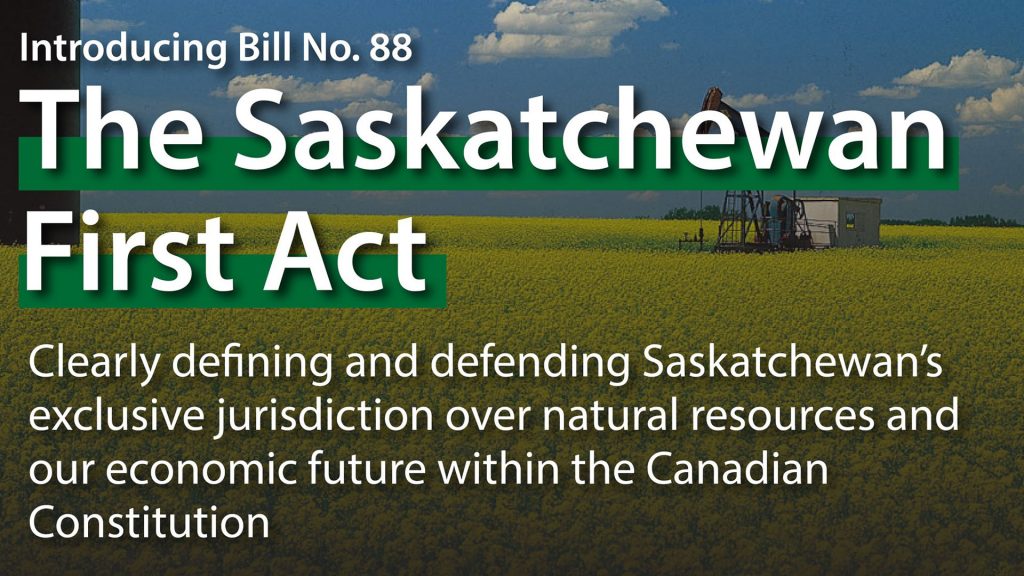
The Saskatchewan government has tabled its controversial Saskatchewan First Act, in spite of push-back from the Federation of Sovereign Indigenous Nations, the Saskatchewan Treaty Commissioner and the opposition NDP.
The government had unveiled the policy in October which is aimed at “confirming Saskatchewan’s autonomy and exclusive jurisdiction over its natural resources”, which appears to be at odds with First Nations rights laid out in the treaties.
“First Nations are not surprised with the province’s lack of consultation and accommodation when it comes to the development of laws, regulations, and policies imposed upon us, especially when it impacts our inherent, treaty and constitutional rights,” said FSIN Chief Bobby Cameron in a statement released Wednesday.
“Our people have always maintained that the lands and waters were never relinquished under Treaty. First Nations continue to be excluded from discussions related to the natural resources, just as we were in 1930 when they imposed the Natural Resources Transfer Agreement.”
The original treaties stated the land was to be shared to the depth of a plow.
Today, our government tabled historic legislation to protect our economic growth and prosperity from intrusive federal policies.
[1/2] pic.twitter.com/3yynbrqtcQ— Scott Moe (@PremierScottMoe) November 2, 2022
A statement posted on the Office of the Treaty Commissioner of Saskatchewan’s website, reads that: Economic reconciliation requires an ethical process that respects Constitutionally protected rights, Treaty rights and United Nations Declaration on the Rights of Indigenous Peoples (UNDRIP).
Métis and Indigenous Rights Critic for the NDP, Betty Nippi-Albright, is promising to re-introduce a bill that would force the government to engage in “meaningful duty-to-consult”. She says it’s needed because the province and industry have not engaged in a meaningful way when First Nations are going to be impacted.
The premier has defended the legislation. In an Oct. 13 statement emailed to APTN News, Scott Moe said the government’s goal was to unlock Saskatchewan’s economic potential for the benefit of everyone in the province, including First Nations.
“Our government’s actions to protect and defend our exclusive constitutional jurisdiction over natural resources does not in any way diminish or detract from First Nations treaty rights, as they are enshrined in the Constitution,” Moe said.
The province’s Attorney General Bronwyn Eyre, called the legislation historic.
“It is time to draw the line and assert our constitutional rights,” Eyre stated, echoing the premier’s comments when the plan was first outlined at a Battlefords business meeting October 11.
The Act amends the Constitution of Saskatchewan and asserts what the government sees as the province’s exclusive legislative jurisdiction under the Constitution of Canada.
That includes jurisdiction over exploration for non-renewable natural resources, the development, conservation and management of non-renewable natural and forestry resources, and the operation of sites and facilities for the generation and production of electrical energy.
The Moe government claims the federal government’s environmental polices would cost the province $111-billion over 12 years.
The FSIN hinted last month it may pursue legal recourse. It said when the province ignores its constitutional obligations to consult on important policies, First Nations have no choice but to consider their legal options.









